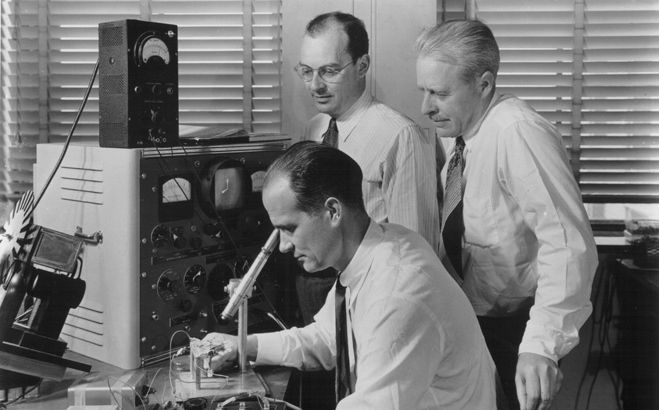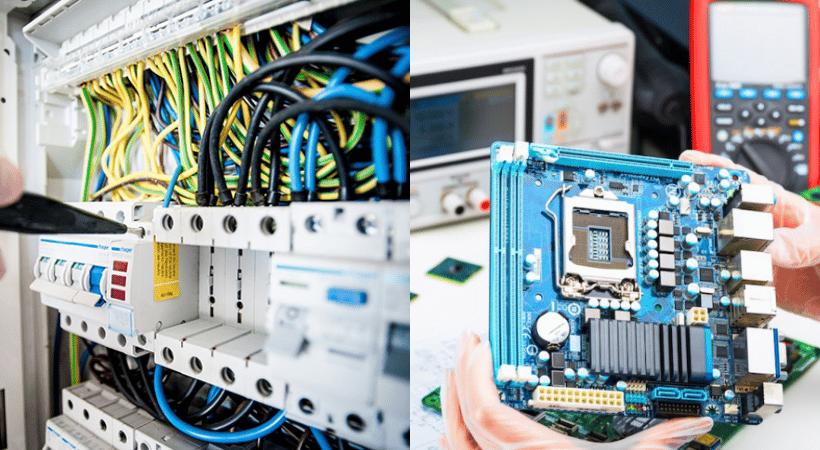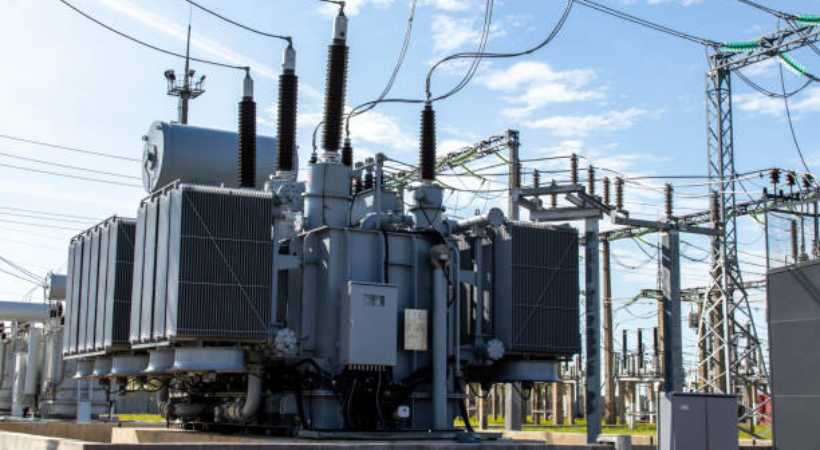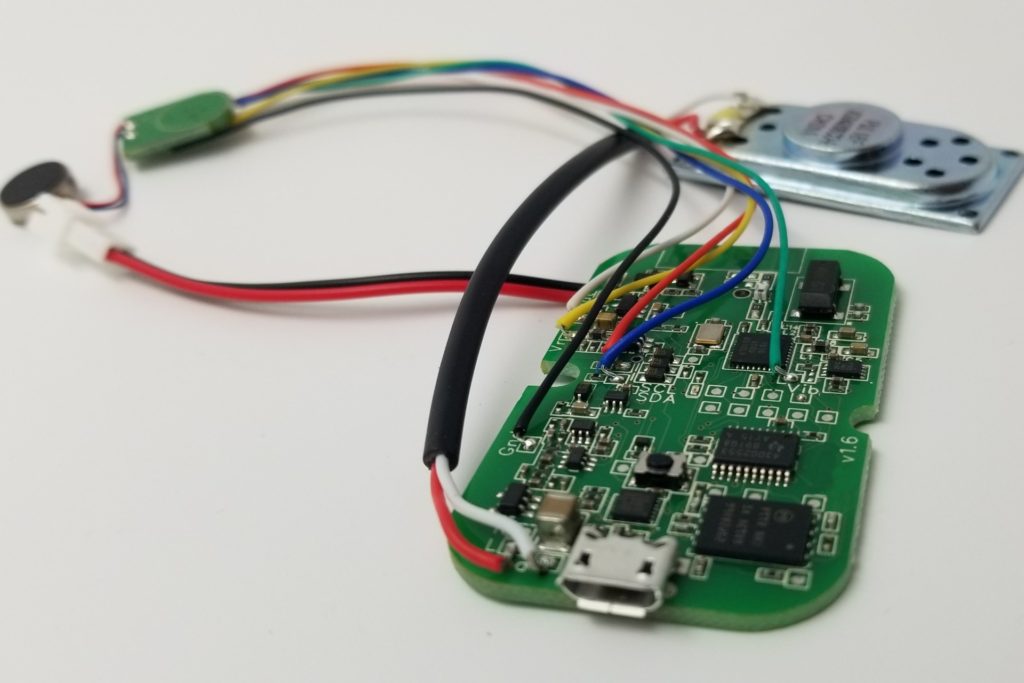Previously we learned:
Now, let’s try to learn the major difference between electrical and electronics. I will also give you examples (where possible) for better understanding.
When starting out with electronics, you will find the terms electrical and electronics in articles and textbooks. They are sometimes confusing, and you want to know what are the differences between them.
So,
Everything started with electrical engineering but with time new subfields of electrical engineering emerged and electronics is one of those subfields of electrical engineering. But now electronics have emerged so much that we consider it a separate branch and discipline of engineering- it is that simple.
The electrical term is mostly related to high AC voltages, transmission, and generation of high power. While electronics is more about low voltages, power, control, and safety systems.
Let’s get into the details and see what we can learn.
Difference between Electrical and Electronics
Electrical engineering is the first and the oldest engineering discipline. In the early days, this field was mainly concerned with the generation, distribution, and transmission of high power and voltage across the world.
But with time as new research emerged and people started talking about semiconductors a new subfield of this large discipline was introduced -called electronics engineering.
Following are some of the major differences between electrical and electronics (engineering) with examples.
1. Electronics is the subfield of electrical engineering
So as I said above electronics is nothing but a subfield of electrical engineering. Electrical Engineering is a very old discipline. But when transistors were introduced back in Bill’s labs in 1947. This changed the landscape of the world we see today.

This single invention of the transistor brought too much attention to electronics. Now electronics is a huge engineering discipline with its own subfields like robotics, intelligent machines, digital and analog electronics and so much more.
Before the transistor, large vacuum tubes were used. The transistor eliminated those large tubes and became the center of attention. It was small, cheap, and easy to manufacture. Also, it has a reliable life span for commercial products.
2. Conductors and Semiconductors
Materials can be classified into three categories based on the flow of electrons.
- Conductors: they easily allow the flow of electrons through them
- Insulators: they don’t the flow of electrons through them
- Semiconductors: they partially allow the flow of electrons
In electrical, we work with conductors such as copper while in electronics we deal with semiconductors.
For example:
Electrical circuits has copper wires which are good conductors and electronics circuits are made of diodes, transistor, and LEDs which are semiconductors.

Your home wiring is the perfect example of electrical while your TV remote is an example of electronics.
3. Flow of charges
In electrical engineering, we deal with conductors in which the majority of charge carriers are electrons. Electrons are responsible for the flow of energy from one part of the circuit to another.
While in electronics we have both holes and electrons that are responsible for the energy flow. Holes are created when an electron leaves its spot.
Electrons flow toward the positive terminal of the voltage source while the holes move toward the negative of the voltage source.
4. Transmission and generations
By generation, I mean the production of power. You may have seen big hydel dames that generate electricity in very large values like in the Mega range.
The process behind the sense of these dames is all electrical engineering. They have big generators that rotate by the pressure of water and generate electricity.

Now when electricity is generated it has to transmit to our homes. Again electrical engineering comes into play here and provides us with the right solution for transmitting this high power to our homes and industries.
On the other hand, electronics have nothing to do with these things in direct relation.
5. Control and monitoring
While electrical energy is all about high power but when it comes to controlling and monitoring electronics play a key role.
For example, we saw above how generators produce these high powers. But we need a control system to control these big machines. Also, we need to monitor them so that nothing goes wrong. All these are possible because of electronics.
We know, we are entering the era of new emerging technologies like self-driven cars. They all use the concepts of electronic control systems.
6. Nature of circuit elements
Circuit elements are like components that we combine in a specific manner to build a circuit that serves a particular task. Now there are electrical circuits and there are electronic circuits.
Electrical circuits mostly use passive components with high power handling capabilities. Electronic circuits are mostly a combination of passive, active, and semiconductor devices with low power ratings.
Examples of electrical circuit elements are relays, transformers, circuit breakers, generators, etc. While examples of electronic circuit elements are diodes, transistors, and ICs.
Also, electrical circuits are operated by AC while electronic circuits are mostly operated by DC.
For those who are complete beginners, passive elements are those that don’t require any external power for their operation. While active are those that do need power external power. Passive elements are lossy while active elements are positive gain providers.
7. Programmable
Think of programming as you telling a system what to do. Like you design a system according to your own rules.
In an electrical circuit, this is something we cannot do. While in electronics we can program an IC, and it will do what we want it to do. Which is very amazing. That is why when it comes to control, the applications of electronics are just remarkable.

There are so many advanced microprocessors and microcontrollers that we can program. Then we put it in our electronics circuit. The circuit will operate according to the program we burn into these microcontrollers.
8. Size and cost analysis
Electrical circuits and devices are very bulky depending on the power handling. Like if you look at transformers at the power station they are equal to the size of the room. But a distribution transformer is small as it handles less power.
A generator with a generating capability of Megawatt is equal to the size of the entire home, but a generator for the home is small and portable. I guess you got the point.
On the other hand, electronic circuits are small and can fit into any portable device.

Now you can tell on your own that an electrical circuit costs a lot while electronic circuits do not cost that much. We can batch produce electronic circuits for the consumer market. And that is the reason so many electronic products are available at these affordable price tags.
9. Nature of voltage & current
By nature, I mean alternating and direct. AC stands for alternating current. This is a type of electric signal in which the signal alternates in opposite directions frequently. Sometimes it is positive and sometimes it is negative.
While DC stands for direct current. In this, the signal is unidirectional, i.e., signals don’t change their directions.
Alright!
In electrical engineering, we are working with AC while in electronics we are dealing with DC. The reason is, that electricity is mostly generated by big hydel generators which by default generate AC. Also, AC is more effective and lossless when it comes to long transmission.
On the other hand, electronics deals with low value DC. Because most of the electronics components are operational using DC. We can store DC in batteries which is an excellent property that makes us able to make portable electronics products.
10. Signal processing
We are living in the age of wireless communication. Where everything depends on signals. Signals carry the data.
For example, your phone. It is connected to the internet because of the signal. You talk to your friends because of signals.
So to work with signals we need to process them try to modulate them and extract the data back from them. This is all possible because of electronics.
11. Communication
Communication means to send information or data from one point to another. This can be done by using wires and also by electromagnetic waves (simply understand them as signals).
Communication is the subbranch of electrical engineering, but we do require some electronics concepts here as well. Thus making it a common field for both electrical and electronics.
12. High frequency
By high frequency, I mean the frequency in the range of 3-30MHz. But we have a higher frequency spectrum as well that we work with. The state of research is going on for 5 and 6G.
Alright!
The point is electronic circuits can deal with high frequency. Such circuits are specifically called RF and microwave circuits. Because of these circuits, we are able to communicate with outer satellites.
We design high frequency circuits in the electronics domain which is not something you will be doing if you want to master electrical engineering.
13. Applications
Up till now, I can say that without electrical engineering as the backbone, nothing would happen in the first place. If electricity had not been discovered, there would be no electronic products, the Industrial Revolution, etc.
Electrical engineering helps us to understand concepts on a broad level, and then with time as we mature in that field we declare it a separate discipline. But it doesn’t mean we are done with electrical engineering.
So, when it comes to applications. It is simple if anything is working on electrical energy in any way or form. It is the application of electrical engineering.
14. Future career
We will need energy for forever. So I believe electrical and electronics engineering are going nowhere.
Talking about specifically electrical engineering, we are developing and moving toward solar energy systems and renewable systems in general. So, if you like working in this area I think it is very promising.
For electronics, we are working on intelligent robotics and hardware, like Artificial Intelligence in general. If you find this area exciting then I believe you will have an amazing career.
Another promising area that I think is worth pursuing is learning about the 5G and 6G. Because this is in direct relation to the Internet of Things. The Internet of Things (IoT) is something that will change the landscape of our future. So if this area excites you, give it a try.
Besides the above, there are so many areas there in both disciplines. But I think the above ones are emerging and have a limited number of experts at this point in time.
Conclusion
As a beginner, it is confusing to understand the difference between electrical and electronics. You will see these terms in different articles and books with clearly differentiated factors.
An easy way to remember is like this:
Electronics is the sub field of Electrical Engineering
Simple Difference for Beginners
Other than that, the following are the main key points that separate electronics from electrical engineering. Some of you may not understand it at this stage, and that is ok.
- Electrical is all about high power electrical generation and transmission while in electronics we deal with low power signals.
- The nature of voltages and current in electrical is AC while it is DC for electronics
- We use passive circuit elements in electrical while the electronic circuit is the combination of both active and passive elements
- In electrical only electrons flow while in electronics we have both holes and electrons
- In electronics, we have control and monitoring systems while in electrical we don’t deal with control.
- Electrical circuits are large while electronic circuits are compact and small
- In electrical, we deal with conductors while in electronics we deal with semiconductor devices such as diodes and transistors
- We have the programming ability in electronics like we can design a system that follows our rules while we cannot program in electrical
- In electronics, we can manipulate and process signals while we don’t deal with this in electrical
- We work with RF and microwave circuits in electronics, but we don’t work with this in electrical.
So that is it. That is all I have for you about this topic. I hope you enjoyed it.
Thank you and have a grateful life.
Next to learn:
Other useful posts:
- Get Started with Electronics
- Basic electronics for beginners
- Learn electronic circuits for beginners
